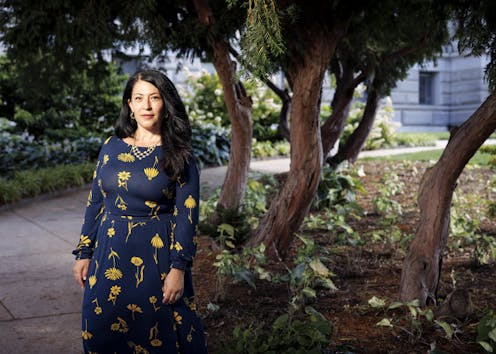Ada Limón is a poet laureate for the 21st century, exploring 'what it looks like to have America in the room'
- Written by Amy Cannon, Associate Professor of Writing, USC Dornsife College of Letters, Arts and Sciences
 Ada Limón is the 24th U.S. poet laureate.Shawn Miller/Library of Congress
Ada Limón is the 24th U.S. poet laureate.Shawn Miller/Library of Congress“Ada Limón is a poet who connects.” This was how Librarian of Congress Carla Hayden introduced the 24th poet laureate of the United States.
From my perspective as a poet and writing teacher, “a poet who connects” is a perfect encapsulation...

